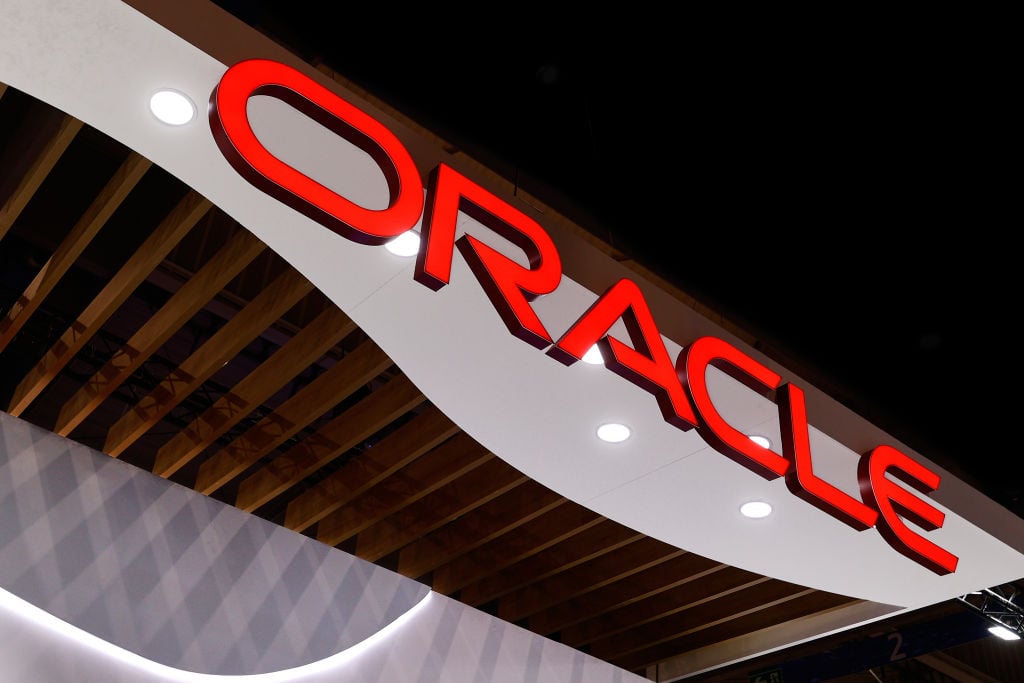Oracle (ORCL 2.54%) shares took a solid beating after the company reported disappointing fourth-quarter results. The company missed estimates on both earnings and revenue as it is trying to transition into a cloud provider. Oracle is also facing competition from SAP (SAP +0.41%) and Salesforce.com, and these two players are presenting challenges for the company. Can Oracle overcome the challenges and improve its performance?
Moving to the cloud
Oracle is looking to become a total cloud solutions provider. It is focusing on cloud computing's two most profitable segments, software as a service, or SaaS, and platform as a service, or PaaS. Oracle is trying to develop a complete and modern portfolio of SaaS products in the cloud, including customer relationship management, or CRM, as well as CRM sales, CRM service, and marketing.
It is adding core human resources, recruiting, talent management, and payroll in human capital management to broaden its portfolio. In addition, Oracle has accounting, procurement, supply chain, and project management services in its lineup, delivering a comprehensive suite of products in the cloud.
Better prospects ahead
All these SaaS applications run on Oracle's in-memory, multi-tenant database, and are developed using Java. The company has expanded, specialized, and strengthened its sales team in order to sell SaaS and PaaS subscriptions. On the back of such developments, Oracle plans to grow its SaaS bookings by more than 50% in the current fiscal year. In fact, the company's moves have already started bearing fruit as Oracle acquired 120 new cloud customers in enterprise resource planning, or ERP, in the fourth quarter alone.
Oracle's cloud bookings were up 37% last year, with the fourth quarter turning in the best performance. Moreover, growth in bookings of its Fusion product lineup was three times as large as the overall growth rate.
All in all, Oracle added 870 cloud customers in the fourth quarter, including 320 customers in human capital management, or HCM, with 110 HCM customers opting for the Fusion products. According to CEO Larry Ellison, Oracle is adding customers at four to five times the pace of rival Workday, which has added 75 new customers to date. In the customer experience service line, Oracle added 430 customers. The restructuring of the company is allowing it to report substantial growth in marketing automation, with bookings growth of 200% last quarter.
The latest acquisition
To consolidate its position in the industry and accelerate growth, Oracle has an outstanding acquisition. The company is on track to complete a deal to buy MICROS Systems (NASDAQ: MCRS) for more than $5 billion. This will be Oracle's biggest acquisition since Sun Microsystems four years ago. MICROS makes hardware and software for the hospitality and retail industries. Its offerings include technology used in point-of-sale cash registers.
This acquisition will result in strong synergies for Oracle and expand its presence in the hospitality industry. MICROS was an Oracle partner earlier. The two companies have been in a partnership for 15 years. MICROS counts big names such as the Hilton, Hyatt, and Marriott hotel chains as clients.
MICROS reported solid growth in the third quarter, with revenue up 11% year over year, and also increased its guidance. Oracle is making a good move with this acquisition, as it will help it compete against SAP and Salesforce in the hospitality industry.
SAP's threat
SAP is making some impressive moves. It is the second-placed player in the CRM space, ahead of Oracle, and is trying to extend its lead after acquiring Hybris.
The acquisition of Hybris has bolstered SAP in e-commerce, master data management, and applications. As a result, SAP customers are now able to choose an e-commerce platform according to their needs. In addition, SAP is now providing access to product-information management, content management, and order management.
SAP's CRM revenue had increased 13% in 2013, well ahead of Oracle's 4% CRM growth. So, the Ellison-led company will need to step up its game in order to compete against SAP.
The takeaway
Oracle might have put in a worse-than-expected performance in the last quarter, but things can improve in the future. It is seeing strength in its cloud products, and its latest acquisition will also help it strengthen its position in the industry.







